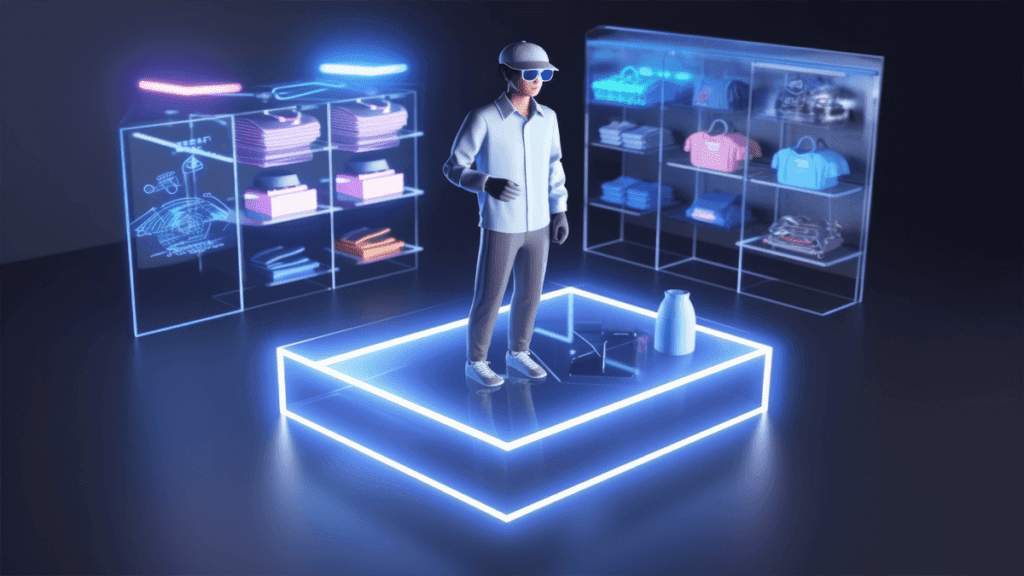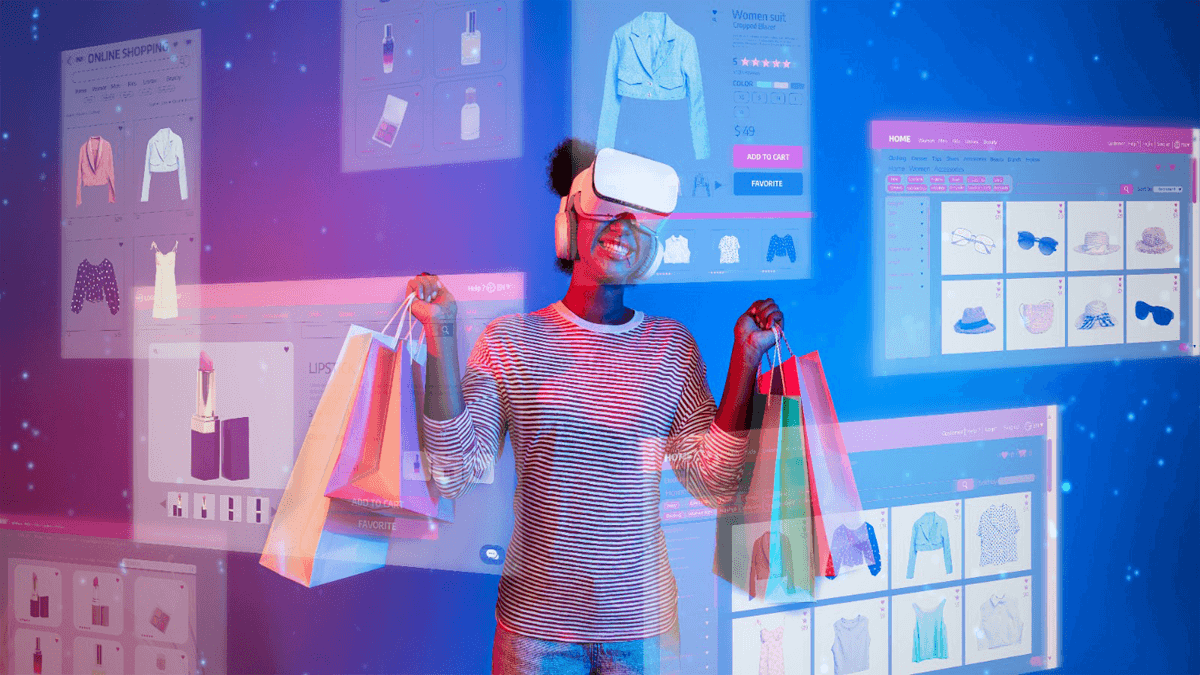You walk into your favorite store, and instead of wandering through endless aisles, a friendly digital assistant greets you by name. It already knows your style, your size, and even what you’ve been browsing online. Before you can ask, it suggests a pair of jeans you’d love, and with a quick wave of your hand, a smart mirror lets you “try them on” virtually. No fitting rooms, no hassle. Just a seamless, personalized experience that feels like magic.
This isn’t a scene from a sci-fi movie. By 2025, shopping will feel less like a chore and more like an interactive adventure, thanks to immersive tech like augmented reality (AR), virtual reality (VR), and artificial intelligence (AI). Retailers aren’t just selling products anymore, they’re crafting experiences that blend the best of digital and physical worlds.
Shopping That Knows You Better Than You Do
Personalization isn’t new, but in 2025, it’s next-level. Imagine walking into a store where the lighting, music, and even product displays adjust to your tastes. AI remembers your past purchases, your preferred colors, and even how you like to shop—whether you’re a quick grab-and-go buyer or someone who loves browsing.
- Your Digital Shopping Buddy: Instead of scrolling through endless options online, an AI assistant cuts through the noise, suggesting items tailored just for you.
- AR Try-Ons That Actually Work: Hate returning clothes that don’t fit? Smart mirrors and AR apps will show how outfits look on your body, not just a model’s.
- Furniture That Fits Before You Buy: No more guessing if that couch will fit in your living room. AR lets you place virtual furniture in your space to see how it looks in real time.
This isn’t just convenient, it makes shopping fun again.
Virtual Stores: The Mall Comes to You

What if you could shop at a boutique in Paris without booking a flight? In 2025, VR stores will make that possible. Put on a headset (or just use your phone), and suddenly, you’re browsing a virtual showroom where you can pick up products, examine them closely, and even chat with a live salesperson, all from your couch.
- No More “Online vs. In-Store”: Virtual stores bridge the gap, letting you explore products as if you were there in person.
- Try Before You Buy, Literally: Test-drive a car in VR, “walk” through a hotel before booking, or see how makeup looks on your skin without swatching.
- Exclusive Digital-Only Experiences: Some brands might offer virtual pop-up shops or limited-edition digital collectables for loyal customers.
For busy shoppers, this means no crowds, no lines, and no wasted trips to the store.
Brick-and-Mortar Stores Get a High-Tech Makeover
Physical stores aren’t disappearing, they’re evolving. In 2025, walking into a retail space will feel like stepping into the future.
- Smart Shelves & Instant Info: Point your phone at a product, and AR overlays show reviews, demo videos, or even sustainability info.
- VR Test Zones: Want to see how a tent holds up in a rainstorm? Stores might have VR pods where you can “experience” products in action.
- Checkout Without Waiting: Facial recognition or sensor-equipped carts let you grab what you need and walk out—no scanning, no lines.
The best part? Staff are freed up to help with real questions, not just ring up purchases.
Why We’ll Love Shopping More in 2025
Beyond convenience, immersive tech does something bigger: it makes shopping emotional.
- Storytelling That Sticks: VR can transport you to where a product is made, watch coffee beans harvested on a family farm or see a handbag stitched by artisans. These stories build connections.
- Rewards That Feel Special: Loyalty programs could include AR scavenger hunts in stores or VIP access to virtual events.
- Shopping as Social Time: Friends might meet up in virtual stores to browse together, even if they’re miles apart.
The Challenges: Not Everyone’s On Board Yet
- Cost: Small businesses might struggle to afford high-end AR/VR setups, though prices will drop over time.
- The Learning Curve: Not everyone’s tech-savvy. Retailers will need to make these tools intuitive for all ages.
- Privacy Questions: With AI tracking preferences, data security is crucial. Shoppers will want transparency about how their info is used.
The Bottom Line: Shopping Becomes an Experience
By 2025, retail won’t just be about buying things, it’ll be about enjoying the journey. Whether you’re testing makeup in AR, exploring a virtual store in pajamas, or walking into a brick-and-mortar shop that greets you like an old friend, tech will make every interaction smoother, more personal, and more memorable.
The future of shopping isn’t just smart, it’s human. And that’s something to look forward to.


